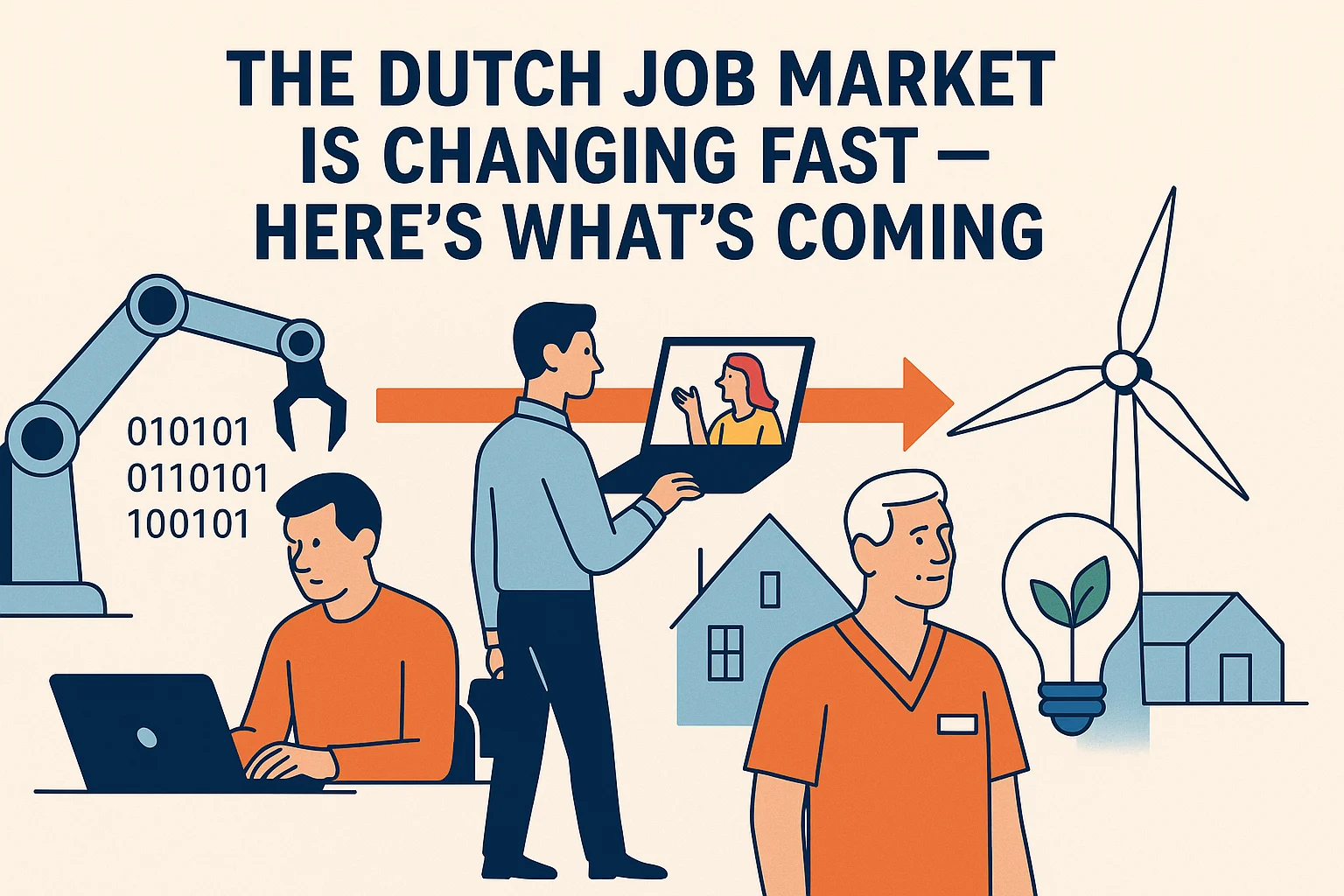The Changing Job Market in the Netherlands: What to Expect in the Coming Years
The Dutch job market is in the midst of a transformation. Over the past few years, waves of change have reshaped how—and where—we work. From artificial intelligence and remote jobs to aging demographics and the green economy, the forces behind this shift are powerful and permanent.
This isn’t just a moment of change. It’s the beginning of a whole new era for workers, employers, and policymakers in the Netherlands.
Technology Is Reshaping the Way We Work
Automation and AI are no longer concepts of the future—they’re happening now. In factories, logistics hubs, and even offices, machines and algorithms are taking over repetitive tasks once done by people.
As a result, demand is shifting rapidly. Skills in data analysis, software development, cybersecurity, and artificial intelligence are on the rise. Workers in all industries are realizing that digital fluency and adaptability are essential—not optional.
The message is clear: if you’re not learning, you’re falling behind. Lifelong learning is becoming a core part of staying employable.
Remote Work Is Here to Stay
The pandemic may have forced us to work from home, but it also opened our eyes to a new kind of flexibility. Today, more Dutch professionals expect hybrid work as the norm—not the exception.
Office jobs are being redefined by flexible schedules, online collaboration, and work-life balance. For many, the old 9-to-5 is no longer attractive—or necessary.
At the same time, freelance work and platform-based gigs are expanding rapidly. But while flexibility brings freedom, it also brings risk. Many independent workers face unstable incomes, limited protections, and little long-term security. The challenge now is to build a flexible labor market that’s also fair.
A Shrinking Workforce and Aging Population
One of the most urgent trends facing the Netherlands is demographic decline. The population is aging, and fewer young people are entering the workforce.
Already, vital sectors like healthcare, construction, and education are struggling to fill roles. Experts warn the problem will only grow worse in the next five to ten years.
To meet demand, companies will need to widen their recruitment strategies—embracing international talent, older workers, and people from underrepresented communities. Immigration policy will play a crucial role in filling the gaps.
Green Jobs Are the Future
The energy transition is not just about cutting carbon emissions—it’s also creating new jobs.
As the Netherlands moves toward a sustainable future, thousands of roles are opening up in renewable energy, green tech, circular economy initiatives, and environmental planning.
Jobs that didn’t exist a decade ago—like solar panel technicians, energy consultants, and circular product designers—are now in high demand. Sustainability is no longer a niche career path; it’s a major employment engine.
Human Skills Still Matter
Even in an age of automation, people skills haven’t lost their value—if anything, they’re more important than ever.
Roles in healthcare, education, and the social sector rely on empathy, communication, and creativity—traits machines can’t replicate. These jobs remain essential, future-proof, and deeply human.
Soft skills, once underestimated, are now powerful assets in a changing economy.
What Lies Ahead
The Dutch labor market is heading toward a more polarized future. While demand for both high-skilled and low-skilled workers grows, middle-skilled roles are under pressure unless they evolve.
We can expect stronger competition for talent, rising wages in key industries, and more focus on reskilling the existing workforce. Government reforms will likely follow—updating labor laws, improving protections for gig workers, and encouraging inclusive hiring.
A Defining Moment for the Dutch Economy
The Netherlands stands at a pivotal moment. The decisions made today—by workers, employers, and the government—will shape the economy for decades.
Change isn’t coming. It’s already here. The question is how we respond. With the right choices, this transformation could lead to a more sustainable, inclusive, and resilient job market for everyone.


